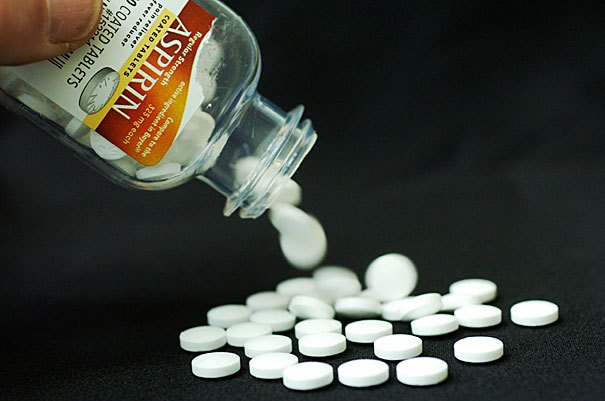-
Tips for becoming a good boxer - November 6, 2020
-
7 expert tips for making your hens night a memorable one - November 6, 2020
-
5 reasons to host your Christmas party on a cruise boat - November 6, 2020
-
What to do when you’re charged with a crime - November 6, 2020
-
Should you get one or multiple dogs? Here’s all you need to know - November 3, 2020
-
A Guide: How to Build Your Very Own Magic Mirror - February 14, 2019
-
Our Top Inspirational Baseball Stars - November 24, 2018
-
Five Tech Tools That Will Help You Turn Your Blog into a Business - November 24, 2018
-
How to Indulge on Vacation without Expanding Your Waist - November 9, 2018
-
5 Strategies for Businesses to Appeal to Today’s Increasingly Mobile-Crazed Customers - November 9, 2018
Regular use of aspirin, NSAID`s may reduce risk of colon cancer
A study from Denmark has unveiled taking aspirin in low-dose a day for at least five years have been linked to reduced risk of colorectal cancer.
Advertisement
Men and women who took low-dose (75 to 150 milligrams) aspirin for five years or more saw their risk of colon cancer drop by 27 percent.
The authors caution that patients with the highest adherence comprised only about 2 to 3 percent of all low-dose aspirin users in the study population, and these persons may have a risk profile for colorectal cancer that differs from that of the general population.
The key aspect of the correlation in the study between aspirin and NSAIDs use and colon cancer risk is the duration of drug intake. Colorectal neoplasms have a long progression, making colorectal cancer an obvious target for preventive interventions.
Dr. John Baron, co-author on the study and professor of medicine from the University of North Carolina’s School of Medicine (Chapel Hill), gave a statement saying that “The protective association is certainly incredible, and it’s a good example of how everyday drugs can have unexpected benefits”.
The scientists, led by Dr Soren Friis, from the Danish Cancer Society Research Centre, wrote: “Our results indicate that if aspirin is taken at doses of 75 to 150 mg, long-term, continuous use is necessary to achieve a substantial protective effect against colorectal (bowel) cancer”. The National Cancer Institute estimates that there are 132,700 new cases for the year 2015.
“That’s a significant amount of time for side effects to accumulate, all without getting any benefit”, he said.
Friis added that non-aspirin NSAIDs were also found to provide protection against bowel cancer with consistent and long-term use.
Several limitations were also noted in the study. Also, the researchers can’t rule out the possibility that other factors may have increased participants’ risk for colorectal cancer, such as obesity, dietary habits, alcohol use, and family history of colorectal cancer.
Advertisement
“The fact that this sort of induction period is required means that it takes some time for the aspirin to affect the carcinogenic process and then, in another delay, that the stopping of that process takes a while to show up”, Dr. Baron explained. At least not until discussing things thoroughly with a doctor.





























